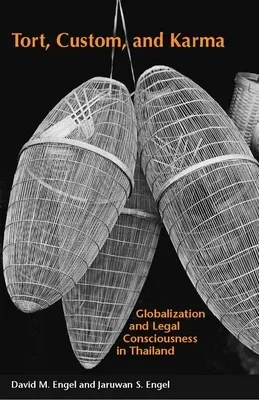David Engel
(Author)Tort, Custom, and Karma: Globalization and Legal Consciousness in ThailandPaperback, 12 February 2010

Qty
1
Turbo
Ships in 2 - 3 days
In Stock
Free Delivery
Cash on Delivery
15 Days
Free Returns
Secure Checkout

Part of Series
Cultural Lives of Law
Print Length
208 pages
Language
English
Publisher
Stanford Law Books
Date Published
12 Feb 2010
ISBN-10
0804763828
ISBN-13
9780804763820
Description
Product Details
Authors:
Book Format:
Paperback
Country of Origin:
US
Date Published:
12 February 2010
Dimensions:
21.34 x
13.72 x
1.78 cm
Genre:
Southeast Asian
ISBN-10:
0804763828
ISBN-13:
9780804763820
Language:
English
Location:
Stanford, CA
Pages:
208
Publisher:
Series:
Weight:
272.16 gm